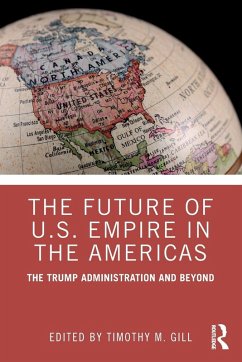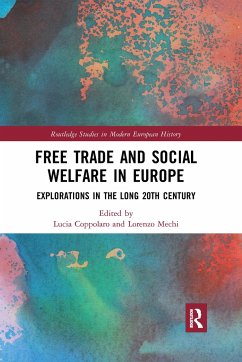
Globalization and the Linkage of Trade and Environmental Issues
Versandkostenfrei!
Versandfertig in 6-10 Tagen
52,99 €
inkl. MwSt.

PAYBACK Punkte
26 °P sammeln!
The effects of globalization on the environment are apressing concern and in order to understandglobalization we need to understand how both freertrade and environment protection measures emerge. This book analyses the dynamic interactions betweencorporations, social movements and state actors inthe Canada-U.S. Free Trade Agreement (CUSFTA), passedin 1988, and the North American Free Trade Agreement(NAFTA), passed in 1993, which is notable for itslinkage of trade and environmental issues due toconcerns over the disparity in development betweenMexico and the United States and Canada. This workc...
The effects of globalization on the environment are a
pressing concern and in order to understand
globalization we need to understand how both freer
trade and environment protection measures emerge.
This book analyses the dynamic interactions between
corporations, social movements and state actors in
the Canada-U.S. Free Trade Agreement (CUSFTA), passed
in 1988, and the North American Free Trade Agreement
(NAFTA), passed in 1993, which is notable for its
linkage of trade and environmental issues due to
concerns over the disparity in development between
Mexico and the United States and Canada. This work
creates a cultural political economy perspective to
explain variations in the linkage of trade and
environmental issues.
This book should be useful for social scientists and
policy makers eager to gain an in-depth understanding
of two examples of globalization and to gather
insights on how to better seek out environmental
protections in the face of free trade.
pressing concern and in order to understand
globalization we need to understand how both freer
trade and environment protection measures emerge.
This book analyses the dynamic interactions between
corporations, social movements and state actors in
the Canada-U.S. Free Trade Agreement (CUSFTA), passed
in 1988, and the North American Free Trade Agreement
(NAFTA), passed in 1993, which is notable for its
linkage of trade and environmental issues due to
concerns over the disparity in development between
Mexico and the United States and Canada. This work
creates a cultural political economy perspective to
explain variations in the linkage of trade and
environmental issues.
This book should be useful for social scientists and
policy makers eager to gain an in-depth understanding
of two examples of globalization and to gather
insights on how to better seek out environmental
protections in the face of free trade.












